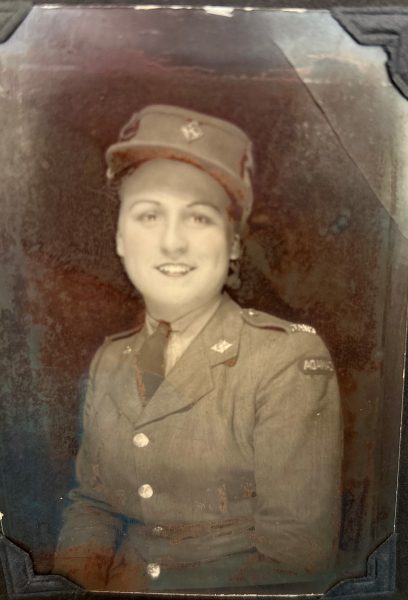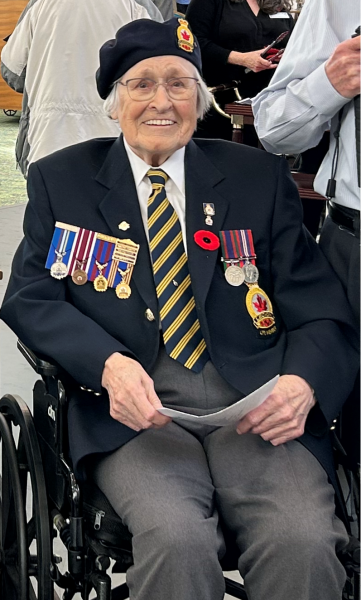26 August 2024
Irene Burd, who lives in Silvera’s Westview Town Suites community, was a plucky 18-year-old who had survived through the Great Depression when she enlisted with the Canadian Women’s Army Corps in 1942. World War II was in full swing when Irene started driving sedans, station wagons, trucks and ambulances.
Before joining the forces, Irene worked in a factory making Hawker Hurricane aircraft at the Canadian Car & Foundry factory in her hometown of Port Arthur (now Thunder Bay), Ontario.
 |
 |
“But when I saw those ladies marching down the street in their smart uniforms I thought ‘I can do that!’” Irene recalls.
The Canadian Women’s Army Corps was headquartered in Winnipeg. After some time there, Irene was eventually transferred to the west coast, where she unloaded hospital ships and drove soldiers to military hospitals in Vancouver.
Most of the women in the Army Corps stayed in the barracks on the military base, but due to the long hours Irene was required to work as a transport driver (12-hour shifts starting at 6 a.m.) she and her fellow women in the service corps lived in rooming houses.
“Many families rented out rooms in their houses during the war,” Irene explains. “They registered with the YMCA, who inspected these places and ensured they were suitable to host the service women. I was lucky and always lived with nice families.”
Irene has fond memories of her time as a transport driver. “It was all women – the men were gone! – so we made our own fun,” she says. “I wouldn’t have changed it for anything. I learned so much, I made so many good friends.”
Unfortunately, it was not the same for her older brother Richard who was in London during the Blitz. He would send her letters urging her to never agree to go to Britain. “I remember one letter he sent me that just said ‘Hell, hell, hell.’”
Richard was wounded during the invasion, and was subsequently put on a hospital ship, then a hospital train. “I drove an ambulance to the train station and picked him up and took him to the hospital,” she says.
When the war ended, Irene was discharged in May 1946. Because there were few jobs in Vancouver, she asked for a transfer to Toronto, where she found a job working in a factory, making fountain pens. A year later she was offered a job with the Bank of Commerce as a teller.
Irene married in 1949 and had three sons and one daughter. After the marriage ended, Irene and her four children headed west. She was planning to move back to the coast but during a stopover in Calgary the night before the Stampede, Irene fell in love with the spirit of the city. She quickly found a job, a place to live, some friends, and created a home here.
Irene turned 100 this summer. “Anything I want to do I’ll do to the best of my ability,” has been Irene’s motto during her first century.
See images from Irene’s 100th Birthday celebration, here.